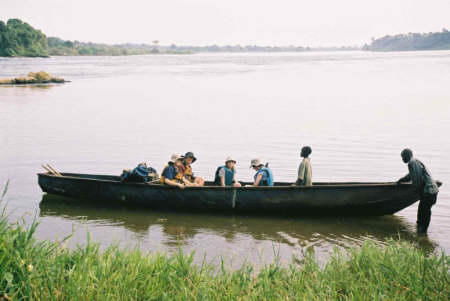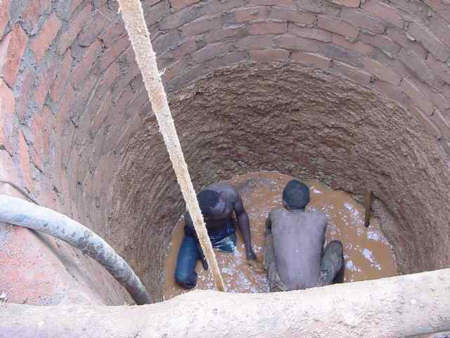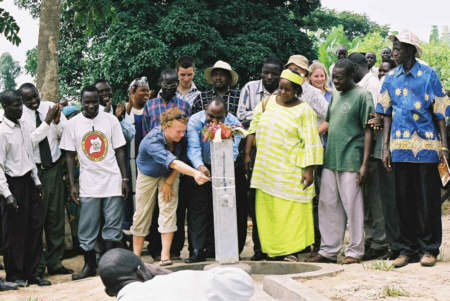Trekking Expedition ‘Northern Cobra’ - Uganda, July-Aug 2004
Tayforth UOTC
The ethos behind the expeditions run by Tayforth UOTC has always been the development of skills such as leadership, personal development and team-working, whilst operating in an unfamiliar, and often difficult, location. The main part of the trip was over a 9 week period. Three groups of 16 students visited for 3 weeks each, and they were supported by a small admin / safety team. Each of the participants kayaked on the white Nile, trekked 50 miles around the Source of the River Nile and undertook part of the community project. All of the 48 students (with one or two exceptions) were new to challenges offered by Africa.Given the remote nature of the site chosen for our project there obviously was no-where available that we could use for accommodation. A suitable site, on the eastern bank near the headwaters of the River Nile, was selected and our base camp was then established.
The trekking phase covered 50 miles, over 4 days, with overnight camps being set close to local villages at night. Due to the severe climactic conditions which had participants operating 4000 feet above sea level, almost on the equator with temperatures reaching 35C, it was essential to familiarise ourselves with the specialised, lightweight equipment that was used. OCdts obviously had to carry all their equipment, although water was collected as required from a variety of boreholes along the route.
|
|
One of the trekking routes involved starting
the expedition by local ferry across the river Nile. I don’t think there can be that many people who have started
their Duke of Edinburgh’s Gold expedition with a journey across one of
the worlds biggest rivers in a dug-out canoe!
Most of the students had not kayaked before and the Nile is, in places, a mighty big river. There are a number of small islands in the Nile and one of these was perfect for overnight spots, but great care had to be exercised as snakes are sometimes found on the small islands. There are two particularly venomous varieties locally, but fortunately they are very timid. |
|
|
Very few Ugandans are fortunate to have a
guaranteed supply of clean water. Most rural communities collect water from
traditional sources. Rural communities suffer dreadfully from water
borne illnesses - 35% of children die before the age of 5 years as a direct
result of not having clean water.
Our project work started with the construction of hand dug wells. This type of well is referred to as a “shallow well”. Dug by hand, and with the spoil lifted from the bottom with a simple bucket on a rope, construction speeds vary depending upon the nature of the ground. Well building is an excellent vehicle, when used as a tool, for the development of self-reliance, team work and leadership through the assessing and solving of the various problems encountered along the way. The end result will, of course, benefit several hundred people. The construction of a well is a major event for any community. The principle significant benefit, apart from clean water and the consequent reduction in disease, is that it is no longer necessary for the communities women to walk 3kms each way to collect water. To demonstrate the importance of this occasion, the wells were ceremonially opened - in this case by the Minister of State for Finance, Planning and Economic Development. |
|
|
At the end of the trip all of the participants had an opportunity to take 2 days to relax and prepare for the journey home. Almost without exception they chose to try the White Water rafting on the Nile and do some souvenir shopping in Kampala.


